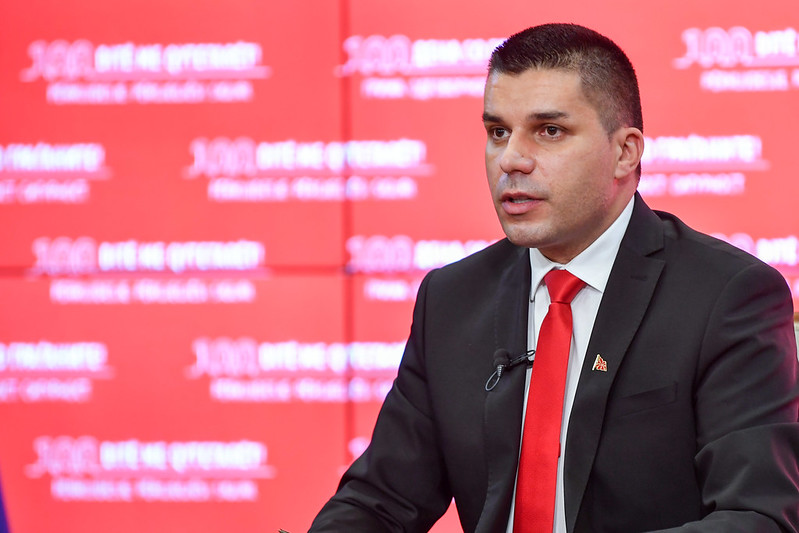In an unprecedented move for the country, Minister of Agriculture, Forestry, and Water Economy Ljupcho Nikolovski announced that 30 percent of subsidies, totaling Mden 750 million (EUR 12.2 million), would be disbursed to 40,000 farmers in advance—scheduled for distribution by the following day, as conveyed during a Thursday press briefing.
Nikolovski urged all farmers to assert their rights and submit applications for additional support under the new subsidy model by December 30.
Highlighting the accomplishments of the outgoing year, Minister Nikolovski emphasized the successful implementation of numerous reforms and programs. Notably, direct payments totaled EUR 127 million in 2023, with the rural development program surpassing EUR 11 million. Additionally, initiatives such as encouraging the consumption of fresh fruits and vegetables, the intervention fund allocation of nearly EUR 5 million, and disbursements from the IPARD II program reaching EUR 13.3 million were highlighted. A total of EUR 157 million has been paid out in the agriculture sector thus far.
The Minister highlighted the significant achievements, such as distributing 730 tractors and finalizing 206 agreements under the ‘Business Plan’ measure. Notably, there was a remarkable surge in demand for breeding stock, reflecting a focus on animal husbandry for 2024. The support extended to young people, women farmers, and young producers was underscored, with 450 agreements concluded in December alone, benefitting small family wineries and small food operators.
The year was dedicated to food production and the realization of the national plan adopted in the preceding year, encapsulated in the new subsidy model.
Discussing the IPARD program, Minister Nikolovski highlighted Macedonia’s distinction as the first country in the region to implement the IPARD III program. Notably, projects worth EUR 96 million are underway following the first open call.
The year also witnessed the passing of a record number of European laws pertaining to wine, zoo technics, advisory systems, alongside parliamentary adoption of laws on wine, fisheries, and aquaculture.
Looking ahead to 2024, there’s a strategic focus on animal husbandry, with subsidies slated for a substantial 300 percent increase.




Comments are closed for this post.